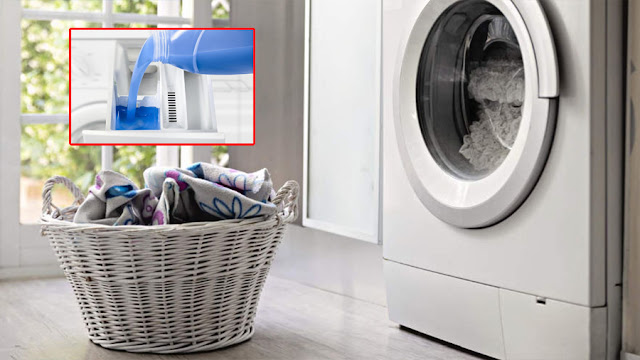Optimizing Your Laundry Routine: How Much Laundry Detergent Should You Use?
Laundry day often leaves us pondering the same question: How much detergent should I use? While liquid detergent caps have notches, and powder detergent comes with a convenient scoop, we're often tempted to use a bit more detergent than necessary, thinking that more soap means cleaner clothes. However, this common misconception can lead to several issues.
Using too much laundry detergent not only affects your budget but also can make it harder to get your clothes truly clean. Additionally, it might harm your washing machine. In this article, we'll explore the correct way to use laundry detergent to safeguard your finances and your appliance.
Signs You're Overusing Laundry Detergent
If you're experiencing any of the following issues with your washing machine, it may be due to excessive detergent usage:
1. Slimy Washer Basin: Overusing laundry soap can cause difficulties in breaking it down, leaving a slimy residue in the machine basin. To tackle this issue, run your washer with water only to clear out the residue.
2. Foul Odor: Excessive detergent or fabric softener can lead to soap scum buildup and create a breeding ground for mold and mildew. A foul odor or sour-smelling clothes is a common result of mold and soap scum. Cleaning your washer and dryer is essential to address this problem.
3. Drainage Problems: Incorrectly estimating detergent amounts can lead to water not draining properly or even cause the machine to stop mid-cycle. Excess suds can damage the machine's hose or trigger a leak.
4. Dark Spots or Rust on Clothing: Dark spots or rust on clothes often indicate soap scum, mold, or mildew inside the washing machine boot, the rubber seal between the door and drum. If it's moldy, it may need replacement.
How Much Detergent Should You Use?
As a general rule, you should use about a tablespoon of laundry detergent per regular load size. The measuring cup that comes with liquid detergent is typically much larger than the actual amount needed. This guideline applies to both liquid and powder detergent, as well as homemade alternatives.
For laundry pods, one is usually sufficient. Refer to your washer's use and care manual for the manufacturer's recommendations on the best soap for your machine and the appropriate detergent quantity. Avoid pouring liquid detergent into the machine without measuring.
Newer washing machines may require high-efficiency (HE) laundry soap designed to minimize excess suds. If you don't use HE detergent in your newer washer, reduce the amount by about one-third of the recommended quantity. Regularly use washer cleaner tablets to dissolve and eliminate any lingering odor-causing soap residue.
Proper Loading Technique
To extend your appliance's lifespan, it's essential to avoid overloading your washing machine. Fill it to about 75 percent capacity, and avoid tightly packing clothes. Distribute clothes evenly and loosely inside to prevent damage. Unless your washer's manual instructs otherwise, add detergent before loading your laundry. If your washer has an automatic detergent dispenser, add it there.
By following these guidelines, you can ensure that you use the right amount of detergent for each load, keep your clothes clean, and prolong your washing machine's life.

